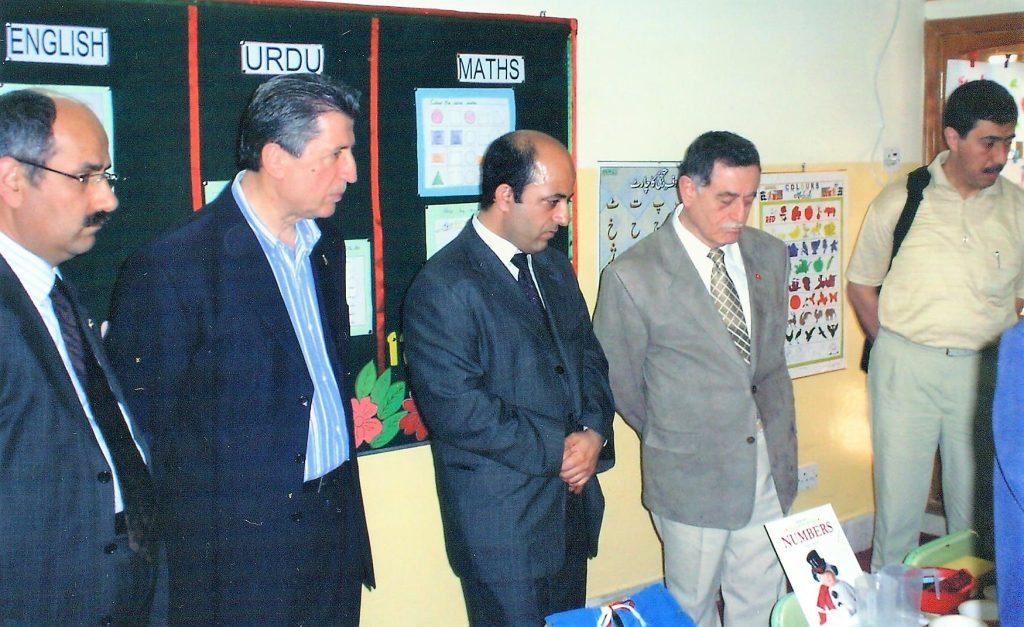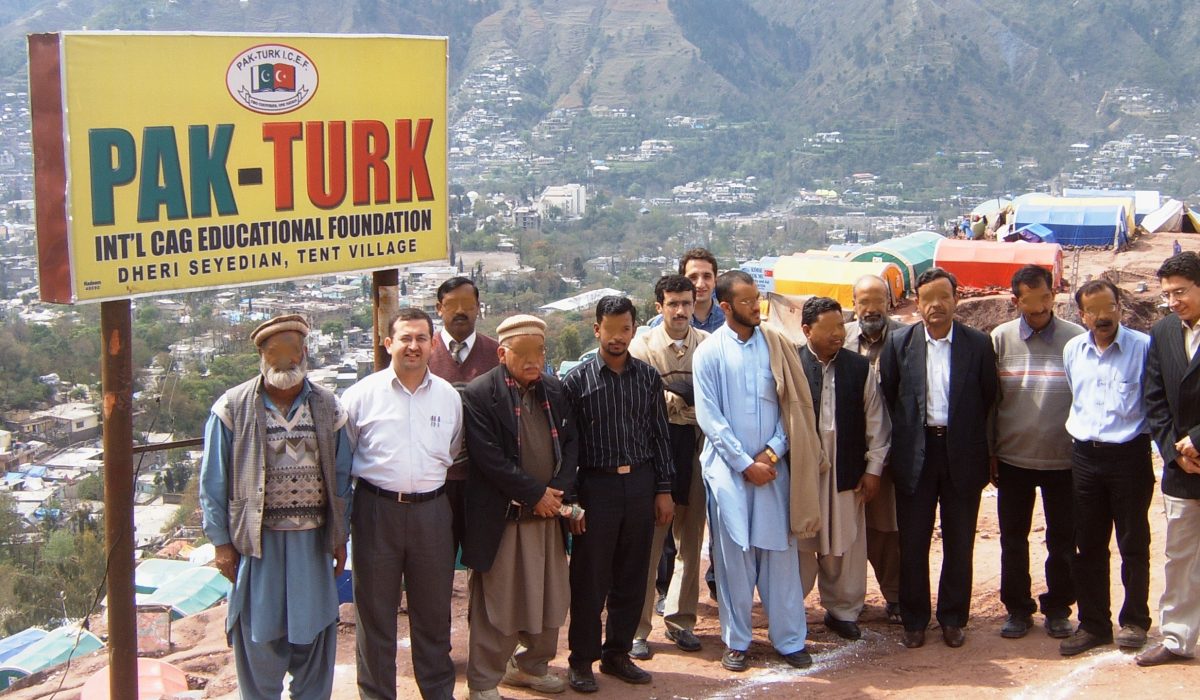Adem Yavuz Arslan, wrote for PakTurkFile: WHAT DID I WITNESS IN PAKISTAN?

Muhammad Owais Bangash: This success would not have been possible without the help of our teachers
November 25, 2021
Opening a school in Lahore and the Punjab governor’s gesture to the PakTurk administrators
November 30, 2021Journalist Adem Yavuz Arslan wrote for PakTurkFile the impressions he had in visits he made to Pakistan during his career. Arslan narrated how the doors the Turkish politicians could not open were opened, and what constructive roles the PakTurk Schools assumed besides catering to education in the country.
As a journalist, I visited Pakistan several times to date.
During each visit, I filed news, conducted interviews and penned columns as part of my job.
Most of those works were related to themes like political analyses or natural disasters. I also shot several eye-candy photographs. Some of those images were even published in a book about Pakistan.
However, this time I will write a different article and convey my observations I have not told before.
As a capital-city journalist, I travelled abroad several times with Turkey’s leading politicians, especially the President and the Prime Minister.
One overseas visit was around the beginning of 2009 with the then-Speaker of the Turkish Grand National Assembly Köksal Toptan and a parliamentary delegation. I was in Pakistan to cover official talks as a journalist there.
Actually, the ‘informal’ side of that visit was even more fascinating for me.
Because we also visited the PakTurk Schools with the Turkish parliamentary delegation. They were schools of high achievement like their counterparts elsewhere in the world.
More important, each of those educational institutions was like an island of peace. Students from Bosnia and Herzegovina, Nigeria, Saudi Arabia and various other countries were classmates there.
The people of Pakistan loved the schools and supported them by all degrees. Teachers from Turkey deemed Pakistan as their second home.
No different than in other parts of the world, success stories were written in Pakistan too. Devoted teachers, local people who supported those schools, and amazing success stories…
Yet, there was something ‘additional’ in Pakistan.
First, I met Turkish teachers who spoke the local languages. What’s more, some administrators had been there for almost 20 years. They arrived there during their high school and university years, learned the local tongues, and formed cordial relations with the leaders of the country.
I also witnessed an event that showed that the ‘good relations’ were not merely in words.
The Speaker of the Grand National Assembly Köksal Toptan and the Turkish parliamentarians in his delegation wished to meet a prominent Pakistani politician, but the Turkish Embassy in Islamabad somehow could not arrange the appointment.
While the issue was discussed during the function I covered, the entire visiting delegation was invited to dinner at the house of the respective local politician, with the intervention of the administrators of the PakTurk Schools the next day, even though it was the weekend.
Imagine that while the Turkish Embassy could not get an appointment, a teacher in Pakistan could do more and got results. Moreover, he could do that with a couple of phone calls and as a ‘civilian’.

This is a fairly significant detail for those who do not view the issue through an ideological lens.
I witnessed that condition all over the world throughout my career. Especially in Africa.
There were Turkish schools where there were no Turkish embassies or consulates, and those educational institutions had practically become the representatives of their home country.
Whenever Pakistan was mentioned, the images that linger before my eyes and practically gave me goosebumps were the activities of the medical doctors affiliated with the schools there.
While covering the official proceedings during my visit to Pakistan, I heard doctors from Turkey were on a tour providing medical check-ups in Afghan refugee camps.
I immediately contacted the doctors and went to one of those refugee camps to observe the mentioned medical screening drive.
The sight was of the shocking kind.
Because no matter how well-intentioned Pakistan endeavoured to deliver humanitarian assistance, it was as if the refugees in that camp lived in another era.
People with no identity, children playing in stagnant puddles, and dilapidated adobe houses…
Between are unnamed tombstones. These refugees, who had not had names while alive, did not have names after death.
Visiting a doctor and receiving medical treatment are impossible. They harbour no such expectation. It is not even possible for women to consult a doctor and be treated.
Doctors hailing from Turkey and working with the PakTurk Schools treated patients and distributed medicines throughout the day. Those were normally places where doctors would not visit even if you paid them tons of money. Yet these doctors, who set out for humanity, waded in the mud to reach people.
As far as I heard from the doctors, such activities continued for a long time. They also elevated their effort into large-scale campaigns during natural disasters, with more colleagues joining them.
We witnessed the numerous activities of both these doctors and the Turkish Schools during the natural disasters that struck northern Pakistan.
More examples can be quoted. Yet, these two examples give very significant messages.
One can tell them at length. However, these initiatives organized around the PakTurk Schools, which I had witnessed, built sturdy bridges between the two countries.
The motto of ‘Two Countries, One Nation’, uttered for many years, took shape and was epitomized with the founding of the PakTurk Schools. Thousands of students educated by these schools laid the foundations of a bright future.
Unfortunately, the PakTurk Schools are forcibly transferred to the Maarif Foundation through the political pressure imposed on Pakistan by the President of the Republic of Turkey Tayyip Erdogan.
I think and hope that the people of Pakistan will put a stop to this mistake. Because, with their achievements, the PakTurk Schools have proven there is no truth in ‘Erdogan’s claims’.





No Comment.